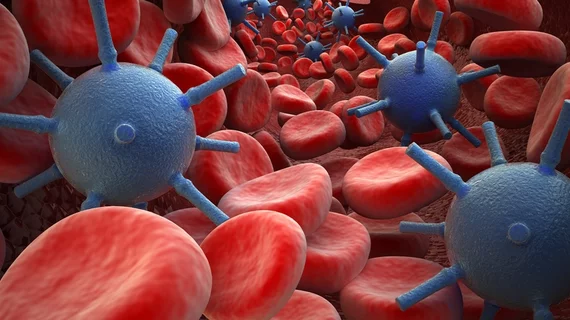Researchers develop portable device for disease screening
Singapore researchers have developed a portable device that can accurately screen for several diseases and infections.
The enVision (enzyme-assisted nanocomplexes for visual identification of nucleic acids) platform was developed by researchers at the National University of Singapore (NUS). According to a press release, the device follows three key steps when screening for a disease: target recognition, target-independent signal enhancement and visual detection.
NUS researcher Lim Geok Soon, PhD, said the device “employs a unique set of molecular switches, composed of enzyme-DNA nanostructures, to accurately detect, as well as convert and amplify molecular information into visible signals for disease diagnosis.”
“Each test is housed in a tiny plastic chip that is preloaded with a DNA molecular machine that is designed to recognize disease-specific molecules,” the release said. “The chip is then placed in a common signal cartridge that contains another DNA molecular machine responsible for producing visual signals when disease-specific molecules are detected.”
Researchers tested the device’s performance against the human papillomavirus, and it accurately detected different subtypes of the same disease and spotted differences within specific subtypes to identify other infections, the release stated.
The device takes 30 minutes to one hour to detect the presence of diseases and costs less than one Singapore dollar (73 cents). If it does detect a disease, the results can be further analyzed using a smartphone.
“The enVision platform is extremely sensitive, accurate, fast, and low-cost," research team leader Shao Huilin said in the release. "It works at room temperature and does not require heaters or special pumps, making it very portable. With this invention, tests can be done at the point-of-care, for instance in community clinics or hospital wards, so that disease monitoring or treatment can be administered in a timely manner to achieve better health outcomes."

